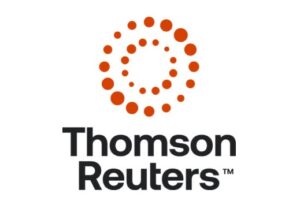Defense Stock Surge In Wake Of Israel-Hamas Conflict Defies Broader Market, Has Some Staying Power
Eisenhower's warning remains as prescient as it was in 1961.
 In his farewell address to the nation at the end of his second presidential term, Dwight Eisenhower, the celebrated World War II hero, was widely expected to deliver the nostalgic discourse of an old solider. Instead, he warned that we must “guard against the acquisition of unwarranted influence, whether sought or unsought, by the military-industrial complex.”
In his farewell address to the nation at the end of his second presidential term, Dwight Eisenhower, the celebrated World War II hero, was widely expected to deliver the nostalgic discourse of an old solider. Instead, he warned that we must “guard against the acquisition of unwarranted influence, whether sought or unsought, by the military-industrial complex.”
Indeed, Eisenhower presided over the early years of the Cold War, and an unprecedented global buildup of arms that coincided with the blossoming of political power for the American defense industry. Though the Cold War has ended, new conflicts have risen up to take its place, and today, Eisenhower’s warning remains as prescient as it was in 1961.
The recent attacks by Hamas, and the immediate and expected response by Israel, unsurprisingly sent defense stocks surging. Even as the Dow Jones, the S&P 500, and the Nasdaq all fell at the outset of the conflict, aerospace and defense share prices saw impressive gains. For instance, in the first trading day following the Hamas attack, Raytheon shares climbed 5%, Lockheed Martin was up 9%, and Northrop Grumman broke out with an extraordinary 11% gain. These companies, along with two of America’s other large defense contractors, accounted for a combined $28 billion jump in market capitalization just three trading days into the Israel-Hamas war.

Luxury, Lies, And A $10 Million Embezzlement
Although it is not unusual for defense stocks to shine even as the broader market is pummeled by news of an outbreak of armed hostilities, usually such gains are fleeting. This time might be different.
After a week and a half of fighting, the iShares Aerospace & Defense ETF (a fund which tracks the share prices of many leading defense companies) was still up about 7% compared to where is was at the time of the initial attacks. Meanwhile, the S&P 500 ended up virtually unchanged over the same period.
While this shows some staying power for the defense industry market surge, it is still far too early to make any meaningful assessments about the effect the Israel-Hamas conflict will have on the long-term financial health of defense contractors. Many analysts are waiting to see whether the war will spread to other regions and whether the U.S. Congress can overcome its ongoing dysfunction to pass the 4% increase in defense spending (bringing the total to $814 billion) in President Joe Biden’s proposed budget.
The United States has always had a complicated relationship with the for-profit companies that stand to benefit financially from large-scale kinetic violence. On the one hand, America would likely not have achieved its powerhouse status on the world stage without the technologies and military production capacity attributable to the private sector. On the civilian side, we also ultimately have the military-industrial complex to thank for some of the most useful and ubiquitous technologies we use on a daily basis — including the internet.
Sponsored

Thomson Reuters' Claims Explorer: A Powerful Tool For Legal Claim Identification


Curbing Client And Talent Loss With Productivity Tech

Luxury, Lies, And A $10 Million Embezzlement

Tackling Deposition Anxiety: How AI Is Changing The Way Lawyers Do Depositions
On the other hand, as Eisenhower warned more than half a century ago, we must always be vigilant against the influence of the partnership between the military and industry. We must never forget that on some level, whether it goes unspoken or is directly stated, we are being urged to pull that trigger or to launch that airstrike. The concept of just war should not be mixed up with a profit incentive. Yet, we must never stop reminding ourselves that it is.
For those of us who have money invested in defense industry stocks — a subset of investors which inevitably includes you if you have any broad index funds — the turmoil in Gaza has punctuated an otherwise underwhelming time in the equities markets. But, for the sake of the people on the ground, let us all hope for a far less profitable period in the weeks ahead.
Jonathan Wolf is a civil litigator and author of Your Debt-Free JD (affiliate link). He has taught legal writing, written for a wide variety of publications, and made it both his business and his pleasure to be financially and scientifically literate. Any views he expresses are probably pure gold, but are nonetheless solely his own and should not be attributed to any organization with which he is affiliated. He wouldn’t want to share the credit anyway. He can be reached at [email protected].
Sponsored
Law Firm Business Development Is More Than Relationship Building








